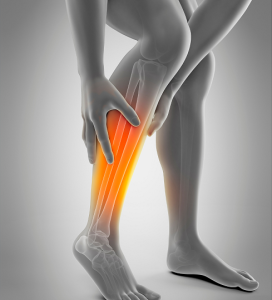Why an Orthopedic Surgeon is Crucial for Joint Recovery

Joint injuries and conditions affect millions of people annually, ranging from sports-related trauma to age-related degenerative changes. When joint problems arise, the path to recovery often requires specialized medical expertise that goes beyond general healthcare. Here is more information on the role orthopedic surgeons play in joint recovery, the specialized knowledge they bring to treatment, and the comprehensive approach they take to restore function and mobility:
Specialized Knowledge and Training
An orthopedic surgeon undergoes extensive training that sets them apart from other medical professionals when treating joint conditions. Following medical school, these specialists complete an orthopedic surgery residency program, followed by optional fellowship training in subspecialties. This comprehensive training equips orthopedists with an understanding of musculoskeletal anatomy and biomechanics.
The specialized knowledge extends to understanding how various factors affect joint healing. This includes age, activity level, underlying health conditions, and individual patient goals. This expertise allows these surgeons to develop treatment plans that address not just the immediate injury or condition, but also the patient’s long-term joint health and function.
Orthopedic surgeons also stay current with the latest research, surgical techniques, and treatment technologies. They participate in continuing education, attend medical conferences, and often contribute to research that advances the field. This ongoing commitment to learning translates into better outcomes for patients recovering from joint problems.
Comprehensive Treatment Approaches
Orthopedic surgeons offer a complete spectrum of treatment options for joint recovery, ranging from conservative management to complex surgical interventions. This comprehensive approach allows them to tailor treatment to each patient’s specific needs and circumstances. Conservative treatment options include physical therapy prescriptions, medication management, injection therapies, and activity modifications. Orthopedic surgeons understand when these non-surgical approaches will be effective and can monitor progress to determine if more aggressive treatment becomes necessary.
When surgical intervention is required, orthopedists perform procedures ranging from arthroscopic repairs to total joint replacements. They possess the technical skills to address various joint problems, including torn ligaments, damaged cartilage, fractures, and degenerative conditions. Modern surgical techniques often involve minimally invasive approaches that reduce recovery time and improve outcomes.
Advanced Diagnostic and Treatment Technologies
Orthopedists utilize sophisticated diagnostic tools and treatment technologies that enhance their ability to diagnose joint problems accurately and treat them effectively. Advanced imaging techniques, including MRI, CT scans, and specialized X-rays, provide detailed views of joint structures that help guide treatment decisions.
Diagnostic arthroscopy allows these surgeons to visualize joint interiors directly, providing information that imaging studies cannot always reveal. This minimally invasive procedure can serve both diagnostic and therapeutic purposes. Thus allowing surgeons to identify problems and address them during the same procedure.
Treatment technologies continue to evolve, with these surgeons at the forefront of implementing new techniques and devices. Computer-assisted surgery, robotic surgical systems, and advanced implant materials all contribute to improved outcomes and faster recovery times. These technologies require specialized training and experience to use effectively.
Find an Orthopedic Surgeon
Joint recovery requires specialized expertise that orthopedic surgeons uniquely provide through their extensive training, comprehensive treatment approaches, and access to advanced technologies. Their role extends beyond performing surgeries to include diagnosis, conservative treatment, and long-term care coordination. Patients facing joint problems benefit from consulting with orthopedic surgeons early in their treatment journey. These specialists can provide accurate diagnoses, outline all available treatment options, and develop personalized recovery plans that address individual needs and goals.
- What to Expect When Visiting a Foot and Ankle Specialist
- Causes of PTSD
- The Link Between Plantar Fasciitis and Weight Gain: What You Need to Know
- How Pet Ownership Can Positively Impact Life with Fibromyalgia
- The Importance of Stretching and Flexibility in Sports Medicine
Dr. Emma Green is a health and wellness expert with over 10 years of experience in nutrition and fitness. Passionate about helping others live their healthiest lives, Dr. Green shares practical advice on wellness, nutrition, and sustainable living through LivingSpristine.






